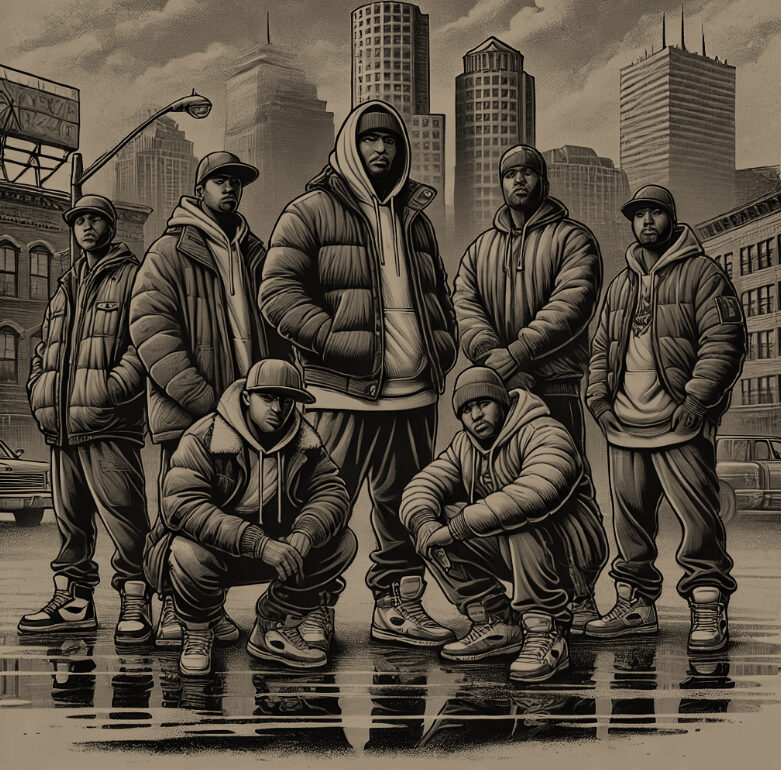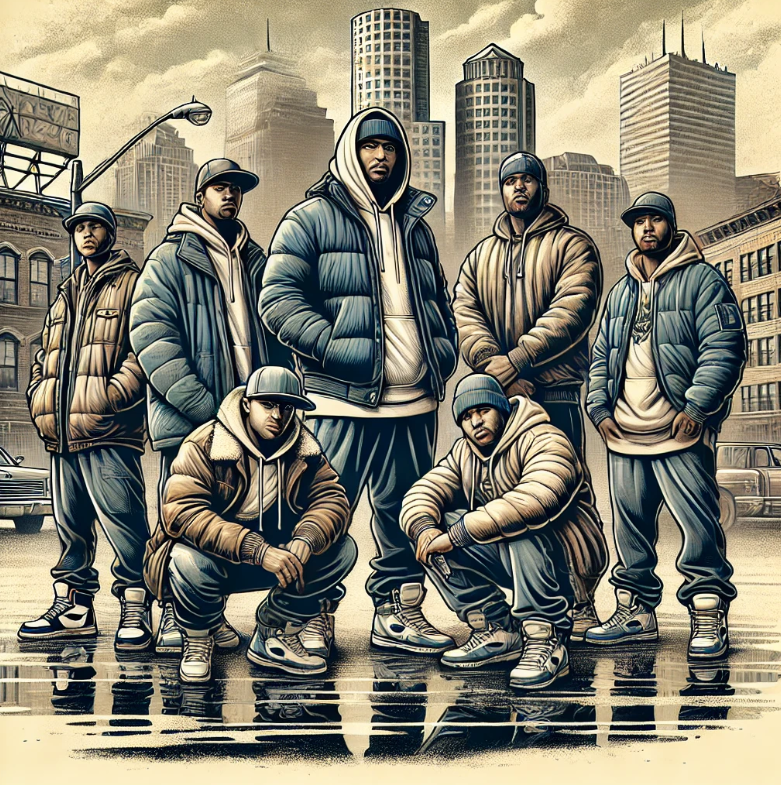
When you think of Hip Hop’s regional hotbeds, Boston might not be the first city that comes to mind. Yet, beneath its reputation for academia, revolutionary history, and sports dynasties lies a vibrant Hip Hop culture that has been shaping the genre in its own distinct way for decades. Boston’s Hip Hop scene is a melting pot, drawing from the city’s diverse neighborhoods, cultural intersections, and storied past. The result is a sound as multifaceted as the city itself—gritty and melodic, introspective and confrontational, traditional yet forward-thinking.
The story begins in the late ’70s, when the first echoes of Hip Hop made their way from the Bronx to Boston, spreading through college radio and underground parties. By the early ’80s, local artists were experimenting with electro-funk grooves, heavy drum machine beats, and synthesizer-driven rhythms that laid the foundation for a unique regional flavor. Tracks like Rusty P & The Sure Shot 3’s “Breakdown New York Style” exemplify this early innovation, fusing sharp lyrical delivery with a sound steeped in the era’s technological edge.
By the ’90s, Boston’s Hip Hop was coming into its own. Albums like Life of a Kid in the Ghetto by Edo. G & Da Bulldogs combined sharp storytelling with infectious hooks, painting vivid pictures of urban life. Meanwhile, Gang Starr, born in the city before Guru’s relocation to Brooklyn, brought an unmatched fusion of lyricism and jazz-infused production to the national stage. These projects reflected a duality in Boston’s music—an ability to mirror the raw realities of life while remaining artistically ambitious.
In more recent years, the city has given rise to a new generation of boundary-pushing artists, from the laid-back charm of Cousin Stizz to the sharp social critiques of Oompa and the kaleidoscopic bars of Joyner Lucas. These artists, and many others, continue to add new layers to Boston’s Hip Hop identity.
This list of 25 essential Boston Hip Hop albums captures the city’s earlier legacy, offering a deep dive into the beats, rhymes, and energy that defined the city’s sound. From the streets of Roxbury to the stages of Allston, these records reflect the resilience, creativity, and cultural depth of a city that deserves its place in the Hip Hop conversation.
Ed O.G & Da Bulldogs – Life Of A Kid In The Ghetto (1991)
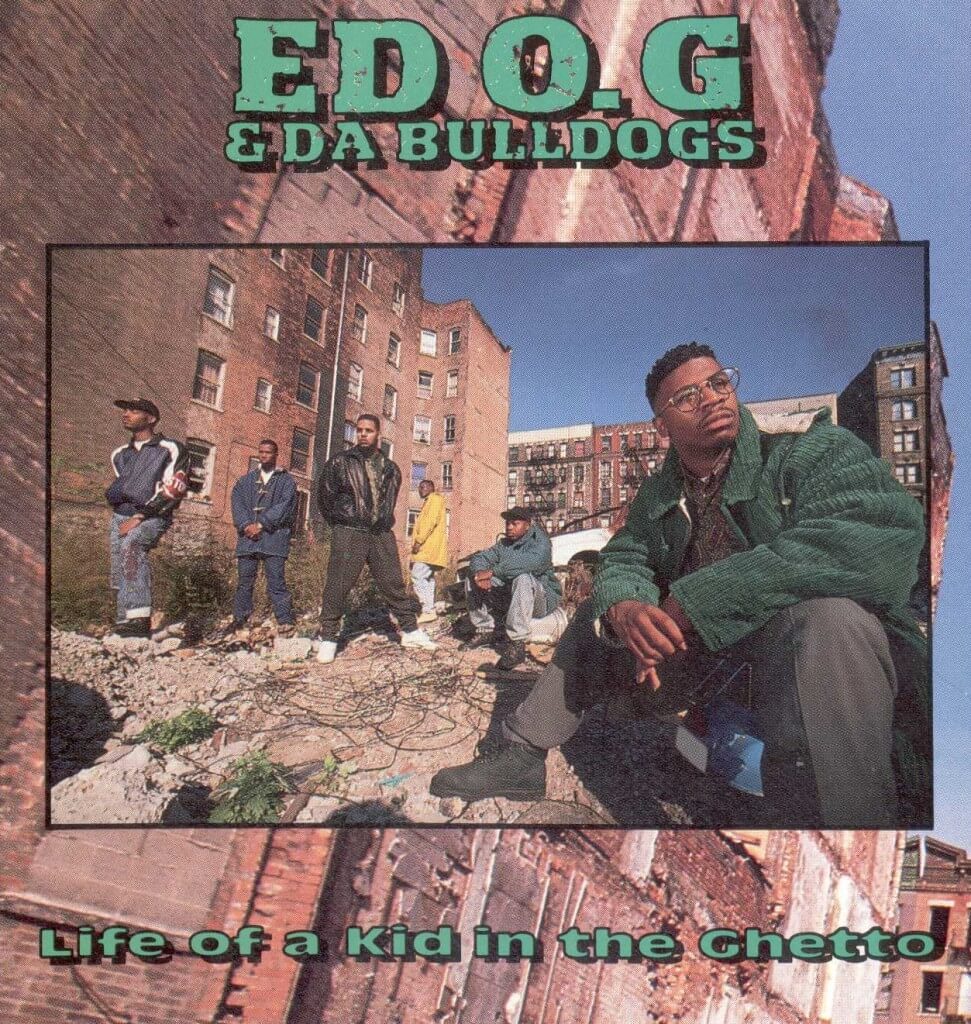

Ed O.G & Da Bulldogs’ Life of a Kid in the Ghetto remains a vivid portrait of everyday struggle and perseverance, delivered with wit, sharp observation, and musical precision. The album’s heartbeat is its deft balance of hard-hitting commentary and playful energy, framed by beats that fuse soulful samples with crisp drum patterns.
The opening track, “I’m Different,” sets the tone with a self-assured declaration of individuality. Over a piano-driven loop punctuated by a Big Daddy Kane vocal sample, Ed O.G’s laid-back delivery contrasts with the intensity of his words. His clarity and rhythm make the lines hit harder, giving weight to his insistence on authenticity. This ability to pair groove-heavy production with reflective lyrics defines much of the album.
“I Got to Have It,” the record’s most enduring hit, is a masterclass in funk-laden simplicity. The lively piano riff, paired with a pulsing bassline, forms the backdrop for Ed’s verses that tackle issues like drug abuse, economic hardship, and Black unity. His cadence carries an effortless swing, allowing the track to double as both a social critique and a party anthem. Meanwhile, “Be a Father to Your Child” takes a deeply personal approach to addressing absentee parenting. Its soulful saxophone melody and steady beat provide a poignant foundation for Ed’s heartfelt plea, balancing urgency with sincerity.
The album doesn’t shy away from lighter moments, with tracks like “Bug-A-Boo” and “Feel Like a Nut” showing Ed’s sense of humor. These songs keep the energy varied while reinforcing his charisma. On “Speak Upon It,” he switches gears, delivering incisive commentary on systemic racism and media bias alongside guests Ace & Quan and Def Jef. The track’s layered production, featuring Malcolm X samples, reinforces its urgent message.
While Life of a Kid in the Ghetto is grounded in early ’90s aesthetics, its themes remain relevant. The Awesome 2 and Joe Mansfield’s production often keeps it simple, relying on tight loops and funky breaks, but the result is timeless. Ed O.G’s ability to oscillate between storyteller, critic, and jokester gives the album an enduring charm, making it a crucial entry in Boston’s Hip Hop history.
Ed O.G & Da Bulldogs – Roxbury 02119 (1994)
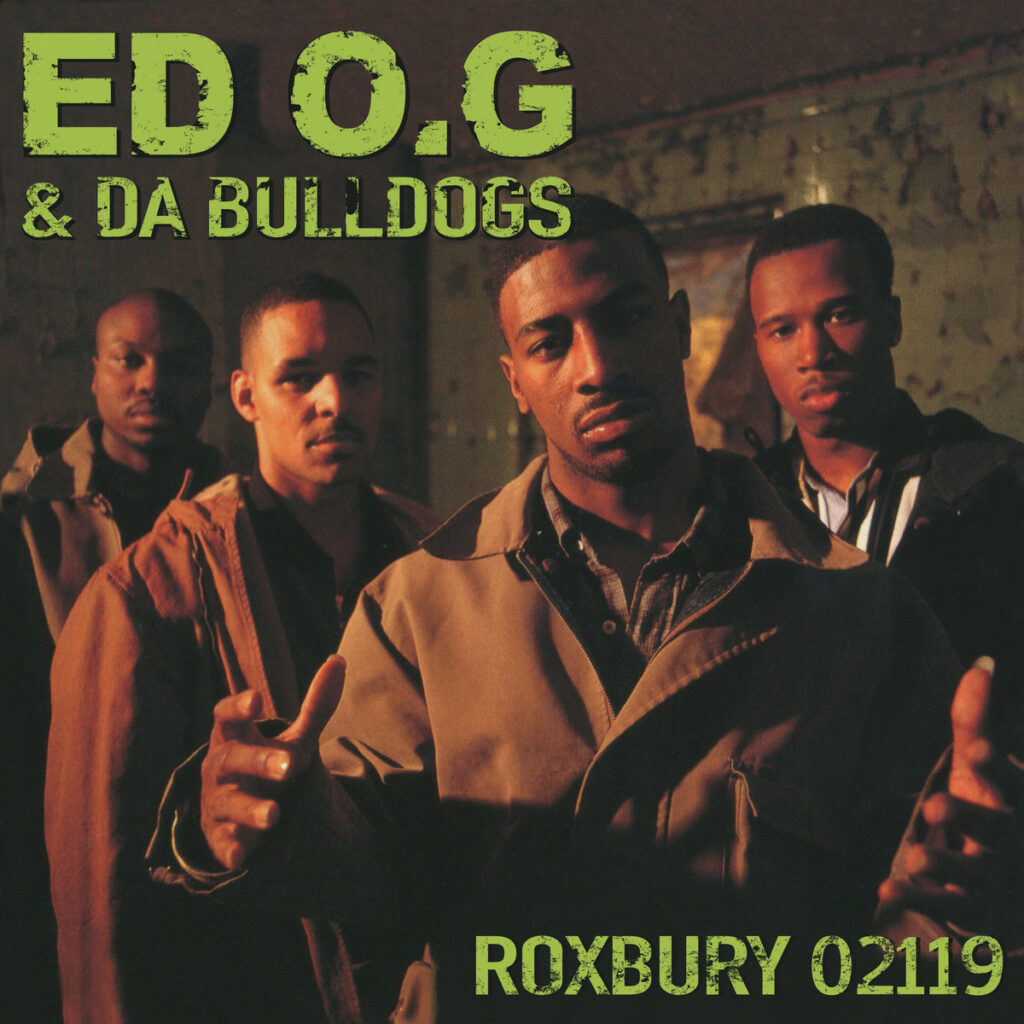


Ed O.G & Da Bulldogs’ Roxbury 02119 carries the weight of its namesake neighborhood, delivering a project deeply rooted in the reality of urban life. While it may lack the mainstream breakthrough of their debut, Life of a Kid in the Ghetto, this sophomore effort dives deeper into gritty themes and layered production.
“Streets of the Ghetto” opens the album with a tense narrative, supported by Diamond D’s masterful production. The eerie Les McCann sample lays a haunting foundation, with sharp horns and hard-hitting drums setting a brooding tone. The track doesn’t glorify its subject matter—it narrates it with unflinching clarity, offering a lens into the cycles of desperation and survival.
Diamond D’s fingerprints are all over this album, providing jazzy boom bap beats that swing between somber and spirited. Tracks like “I Thought Ya Knew” highlight his knack for weaving samples—Miles Davis and the J.B.’s come together seamlessly to create a lush, head-nodding groove. “Love Comes and Goes” shifts to a reflective mood, with mellow horns and a soulful backdrop enhancing Ed O.G’s introspection on loss and resilience.
Not all tracks hit the same high. Songs like “Try Me” veer into radio-friendly R&B territory, feeling out of place amidst the otherwise hard-edged boom-bap aesthetic. The unevenness in tone detracts from the album’s cohesion, though it doesn’t entirely derail the experience.
Lyrically, Ed O.G balances storytelling and braggadocio with an understated confidence. His verses carry an everyman relatability, and while his delivery lacks the flash of some contemporaries, his grounded style suits the material. Scientifik makes a memorable appearance on “Skinny Dip (Got It Goin’ On),” adding a lively contrast to the track’s laid-back beat.
“Busted” and “Dat Ain’t Right” are standout cuts, both elevated by Diamond D’s ability to craft tense, dynamic instrumentals. The album closes with “Check It Out,” a solid if slightly underwhelming finale featuring some promising but underdeveloped horn samples.
Roxbury 02119 offers a glimpse at mid-90s Boston Hip Hop—raw, reflective, and occasionally inconsistent. Despite its flaws, the album’s strong production and authentic perspective make it a vital listen for fans of Golden Age boom bap.
Street Poets – Street Poets (1995)
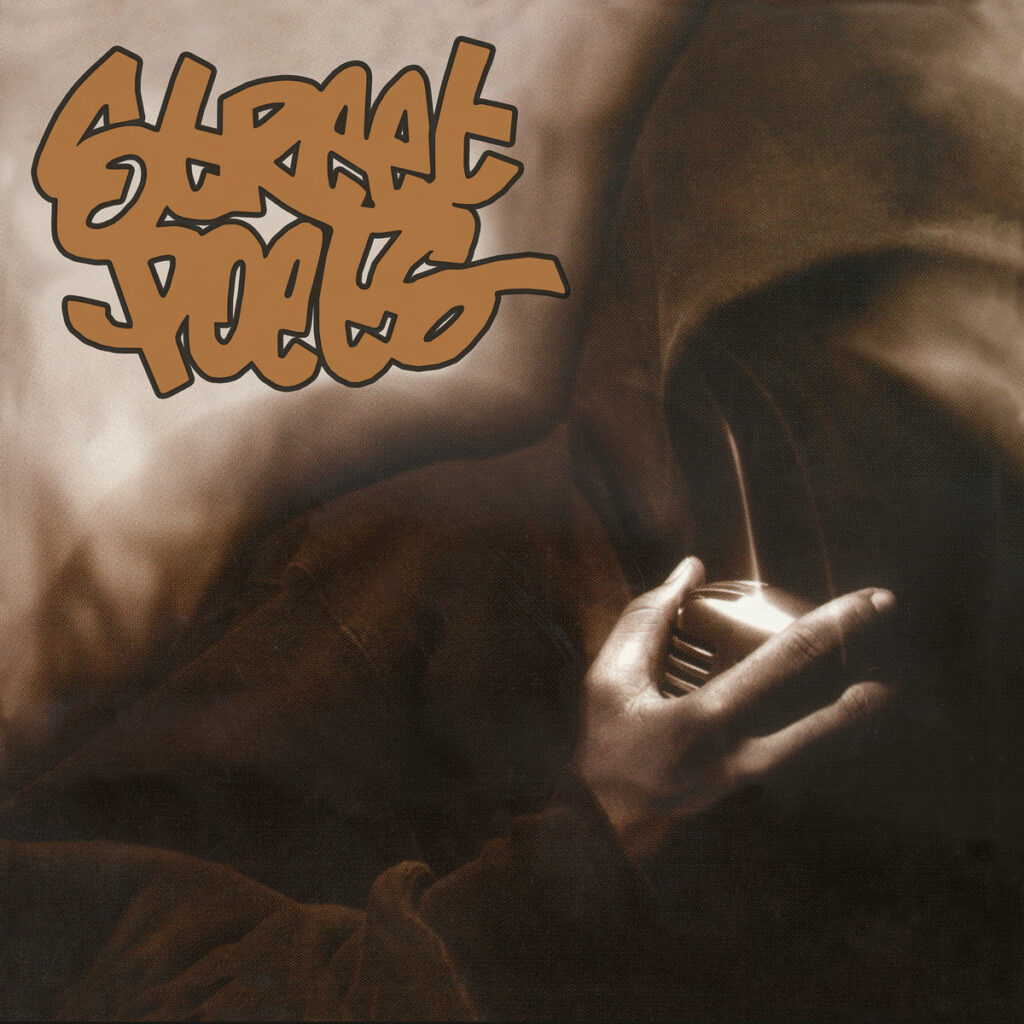


The Street Poets self-titled album from 1995 is a fascinating snapshot of Boston’s underground Hip Hop scene in the mid-90s. It’s an understated yet compelling release, driven by atmospheric boom-bap production and a calm, methodical approach to rapping. The project stands out for its cohesive sound, even as it shifts between three distinct sections helmed by different performers: Punch Spiked W/ Poison, DIF Productions, and Polecat.
The production, primarily handled by Underground Productions, is the album’s backbone. Tracks are built around smooth, jazzy loops and haunting soul samples, laced with dusty, midtempo drums. There’s a balance of elegance and grit in these beats—tracks like “Everybody Knows Me” and “Out Ta Flip” offer fluid rhythms that feel meticulously crafted without being overly polished. The standout “Can’t Find My Way” exemplifies this, weaving dark piano lines with vinyl crackle and somber strings over rugged drums. The result is a track that feels immersive and emotionally charged.
While competent, the rapping occasionally pales compared to the production’s richness. Each of the three main contributors has a solid, controlled delivery, but they don’t leave much of a distinct imprint. Lyrically, the content leans on street narratives and bravado, offering flashes of wit and insight but rarely breaking new ground. The consistency of tone and flow across the album makes it easy to listen to front to back, even if the voices sometimes blur together. Tracks like “Skinz” and “True Romance” bring some variety, with shifts in mood and pacing that keep things dynamic.
Released by DBK Records, Street Poets didn’t gain much traction outside its local scene, but it’s a gem for fans of 90s East Coast Hip Hop. Its production quality and vibe-rich soundscapes reward repeat listens, and its obscurity adds to its allure. While not groundbreaking, it’s a well-executed piece of boom bap history, offering a glimpse into the talent brewing in Boston during one of Hip Hop’s golden eras.
The Almighty RSO – Doomsday: Forever RSO (1996)
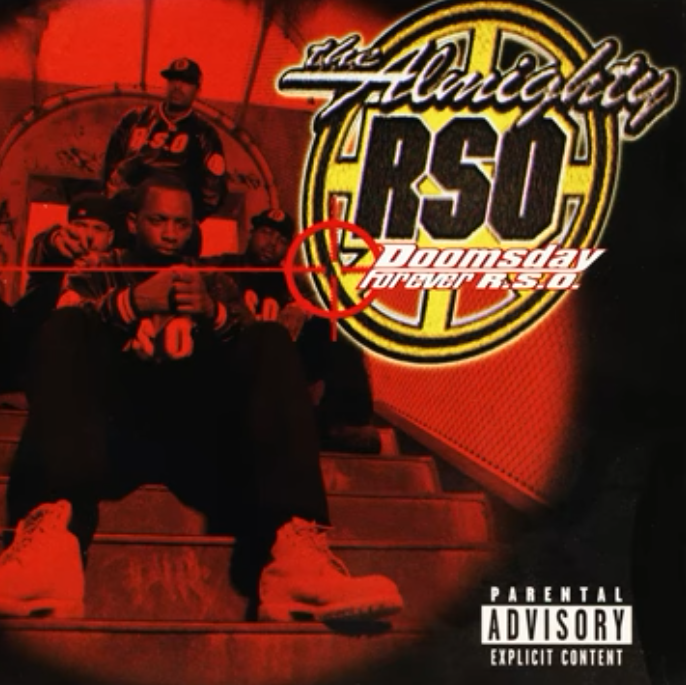


The Almighty RSO’s Doomsday: Forever RSO is an album defined by contradictions, merging gangsta rap bravado with introspective storytelling over a varied production palette. Emerging from mid-90s Boston, the group combines East Coast grit, Southern bounce, and G-Funk influences, carving out a unique space in Hip Hop’s diverse landscape.
The production, helmed by Rap-A-Lot mainstays like Crazy C and Boston’s The Hangmen 3, anchors the album with its eclecticism. Tracks such as “Forever RSO” mix wah-wah guitars and soulful basslines for a funk-infused, streetwise vibe, while “The War’s On” taps into a raw, menacing energy courtesy of Havoc’s atmospheric beat and a guest appearance from Mobb Deep. This sonic diversity continues with songs like “Gotta Be A Better Way,” pairing introspection about escaping street life with shimmering synths and melodic hooks, and “Summer Knightz,” a polished groove sampling The Isley Brothers’ “Voyage to Atlantis.” Conversely, grittier tracks like “You’ll Never Know,” enhanced by Mad Lion’s dancehall edge, highlight the group’s rougher side.
Lyrically, the album alternates between crime tales, personal reflection, and lighter moments. On “Illicit Activity,” featuring 8Ball & MJG, the group weaves streetwise narratives, while “One In Tha Chamba” confronts police brutality with defiance, bolstered by fiery guest spots from Smif-N-Wessun and M.O.P. Meanwhile, “You Could Be My Boo,” featuring Faith Evans, leans into R&B, delivering a radio-friendly but jarring contrast to the album’s harder tracks.
Despite standout moments, Doomsday struggles with cohesion. Shifts between introspective, aggressive, and pop-leaning tracks can feel disjointed, as if attempting to cater to too many audiences. This inconsistency weakens the album’s storytelling and thematic focus. E-Devious emerges as the standout lyricist, exploring mental strain and survival in tracks like “Sanity” and “Keep Alive,” bringing depth often absent in the contributions of Benzino and Tony Rhome.
Production remains the album’s strongest suit. Crazy C’s Southern warmth, The Hangmen 3’s polished regional fusion, and pop-leaning tracks like “You Could Be My Boo” sustain interest even when the lyrics falter. While Doomsday: Forever RSO falls short of being a cohesive statement, its ambitious blend of styles and regional influences offers gems for fans of mid-90s rap and is a vital artifact of early Boston Hip Hop.
Mike Ladd – Easy Listening 4 Armageddon (1997)
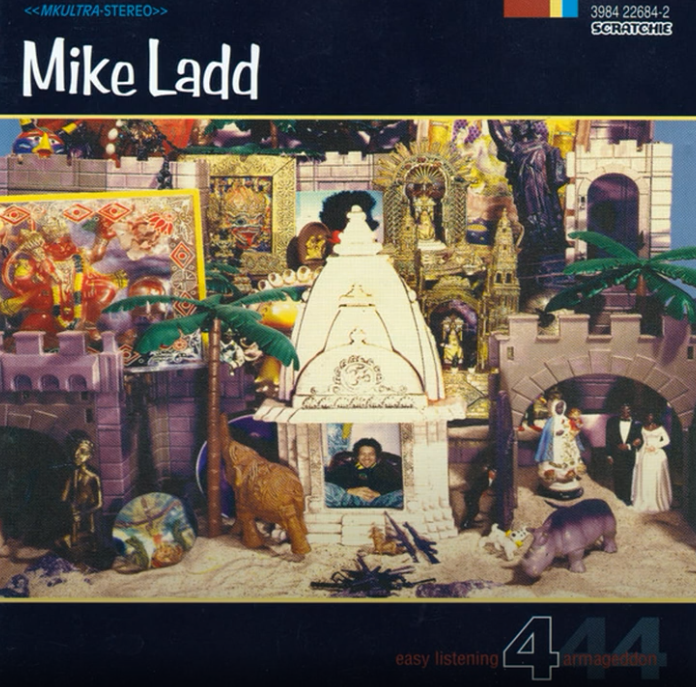


Mike Ladd’s Easy Listening 4 Armageddon is an album that melds spoken word, lo-fi Hip Hop, and jazz-tinged soundscapes into a vivid, introspective experience. This debut effort from Ladd, a Boston-raised poet and producer with roots in punk rock and the Nuyorican Poets Café, is less about traditional beats and hooks and more about atmosphere, narrative, and subversion.
The album’s title hints at its ironic tone—playful yet laced with tension. Tracks like “I’m Building a Bodacious Bodega for the Race War” highlight Ladd’s ability to balance humor and sharp social critique. His lyrics are dense and often surreal, tackling race, politics, and personal identity with a mix of wit and gravity. The delivery is conversational, almost muttered at times, drawing listeners in as if they’re overhearing fragments of an urgent monologue.
Musically, Easy Listening 4 Armageddon thrives on subtlety. The beats are minimalist but never monotonous, leaning on soft basslines, eerie loops, and jazzy undercurrents. Songs like “The Tragic Mulatto Is Neither” feel atmospheric and moody, with faint horns and brushed percussion that create an almost cinematic backdrop for Ladd’s words. “Kissin’ Kecia” introduces unexpected alt-rock elements, blending supple basslines with understated vocal effects to shape a track that feels dreamlike yet grounded.
One of the album’s standout moments is Ladd’s seven-minute rendition of “Blade Runner.” The sparse production amplifies the track’s hypnotic quality, with its slow, deliberate rhythm creating space for Ladd’s hallucinatory storytelling. Elsewhere, “Off the Coast of Okrakoke” pairs a haunting melody with fragmented, evocative imagery, resulting in a track that lingers long after it ends.
While Easy Listening 4 Armageddon is undeniably engaging, its abstract approach and intricate lyricism make it a record tailored for a select audience. It demands focus and rewards those who take the time to unpack its layers. This isn’t a collection of radio-friendly tracks; it’s an auditory experience that blurs the lines between music, poetry, and performance art. For listeners attuned to its rhythms, it’s a striking debut that continues to intrigue decades later.
Kreators – No Contest (1999)
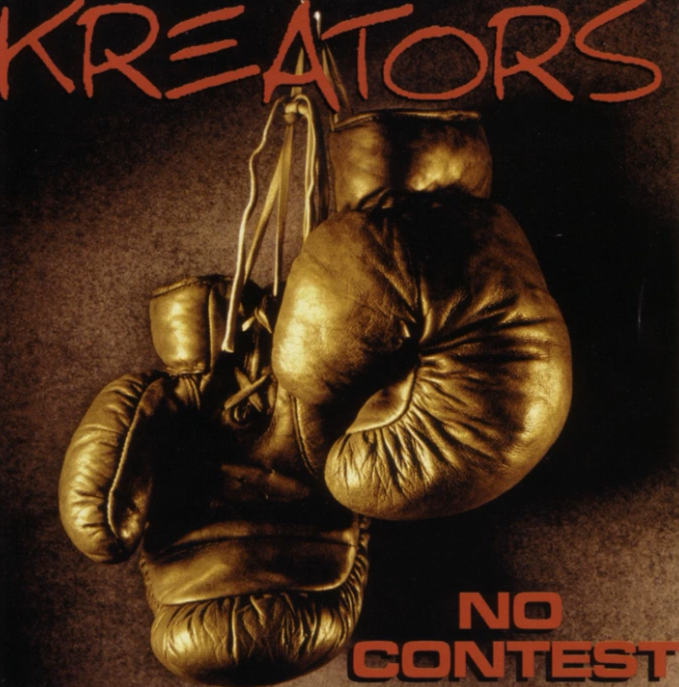


Kreators’ No Contest is a no-frills entry into late-’90s East Coast Hip Hop, defined by sharp lyricism, cohesive production, and a sense of purpose. Hailing from Boston, the four-man crew—G Squared, Jayson, XL, and Big Juan—delivers a record that is grounded in a classic approach while reflecting the tension between underground ideals and the commercial pressures of the time.
The production, helmed by G Squared, leans on stripped-back but effective beats. Tracks like “Foreign Lands” shine with a subtle blend of harp-like strings and acoustic guitar, crafting a mood that feels reflective yet hard-hitting. The drums carry a crisp snap, grounding the melodies and keeping the energy forward-moving. Songs like “No Ordinary Love,” featuring fellow Boston stalwart Ed OG, pivot to a more bass-heavy groove, with layered rhythms that demand a head nod.
Lyrically, No Contest balances bravado with insight. “Who to Trust” highlights the group’s disdain for the commodification of Hip Hop, while also delivering personal reflections. The hooks are direct and memorable, and the verses—delivered with raw energy—often carry a dual weight: asserting dominance over “wack MCs” while critiquing a system that rewards imitation over authenticity.
The album doesn’t stray far from its core themes, occasionally leaning heavily into industry critiques and self-promotion. While this focus limits the variety in subject matter, it also reinforces the group’s commitment to their message. The Kreators are at their best when they let their chemistry shine, trading verses with an ease that suggests years of collaboration.
What makes No Contest resonate is its commitment to essentials. The group’s dedication to the craft—lyrically dense verses, hard-hitting beats, and meaningful features—ensures the album maintains its presence. In an era where excess often overshadowed skill, Kreators focused on clarity, creating a record that represents Boston Hip Hop with pride and precision.
Made Men – Classic Limited Edition (1999)
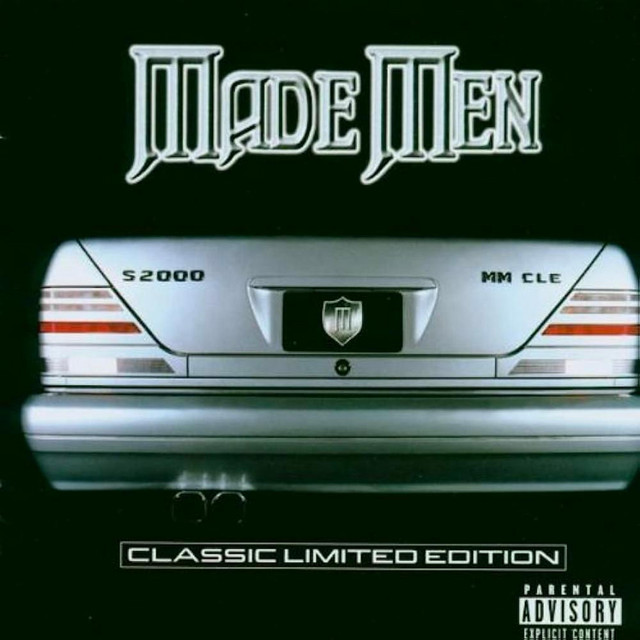


Made Men’s Classic Limited Edition is a polished entry in late ’90s East Coast Hip Hop, blending swaggering production with lyrics steeped in street narratives and braggadocio. The trio—Benzino, Antonio Twice Thou, and Mr. Gzus—team up with Hangmen 3 and a roster of high-profile collaborators to craft an album that captures the era’s trends while leaving its own mark.
The soundscape leans heavily on the glossy aesthetic popularized by contemporaries like Bad Boy Records and Ruff Ryders, with Hangmen 3’s production adding a gritty undercurrent. Tracks like “Keep It Movin” layer sharp, bouncing beats with confident delivery, showcasing Made Men’s ability to ride a beat with precision. Meanwhile, “Right Now” incorporates dramatic horns and strings, adding cinematic tension to the trio’s verses.
Guest appearances pepper the album, injecting variety while occasionally overshadowing the group. Master P’s feature on “Is It You (Deja Vu)” adds Southern drawl over a laid-back groove, while Montell Jordan’s smooth hook on “Sticky Situation” provides a lighter, R&B-tinged break in the album’s otherwise rugged flow. Big Pun’s appearance on “Drama Still” is a standout moment, his rapid-fire delivery contrasting with Made Men’s deliberate pacing.
The album thrives in its balance between grandiose production and hard-edged storytelling, though not every track hits the mark. Moments like “Not the One,” featuring Monifah and Queen Pen, feel overly crowded, diluting the core identity of Made Men. Still, these collaborations highlight the group’s ability to tailor their sound to a variety of styles.
The controversy surrounding the album’s reception—particularly its inflated Benzino-steered rating in The Source—has cast a long shadow over its legacy. However, beyond the politics, Classic Limited Edition remains a time capsule of late-90s Hip Hop aesthetics. Its polished production, confident performances, and roster of collaborators provide a snapshot of an ambitious, if occasionally uneven, project that reflects its time.
For those exploring Boston Hip Hop history, Classic Limited Edition offers a valuable, if polarizing, listen—full of highs, guest-driven experimentation, and a vivid sense of the era it inhabits.
Mike Ladd – Welcome To The Afterfuture (2000)
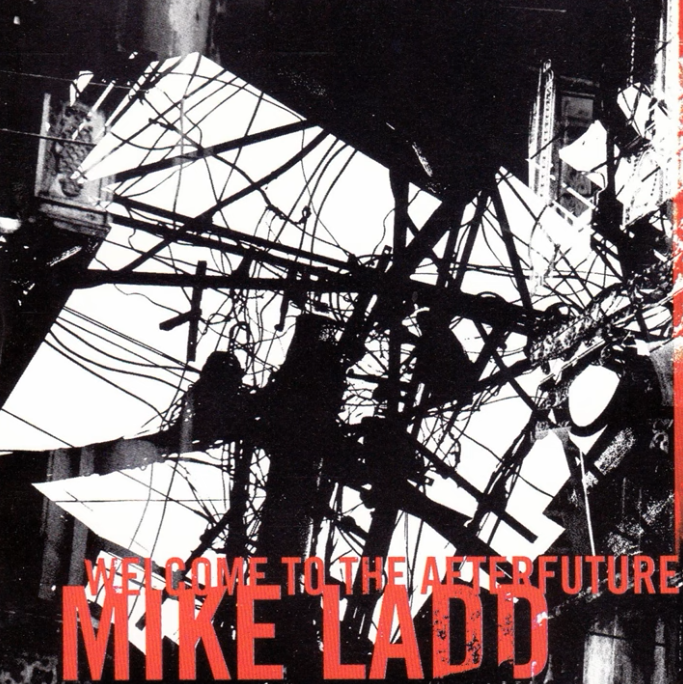


Mike Ladd’s Welcome to the Afterfuture is a futuristic, genre-bending experiment that captures the uncertainty and chaos of the turn of the millennium. With a blend of Hip Hop, electronic beats, and avant-garde influences, Ladd creates a world where sounds are constantly shifting, and the familiar is turned on its head.
From the first track, “5000 Miles West of the Future,” Ladd’s approach is clear—this isn’t traditional Hip Hop. The song kicks off with a jagged keyboard, then smoothly transitions into ambient spaces, setting a tone of disorientation that runs throughout the album. Ladd’s rhymes, often conversational and introspective, are framed by these experimental soundscapes. He shifts between profound observations and abstract thoughts, delivering lines like, “I’m gonna steal from the foreign merchant / For the cinnamon peeler’s wife / Like I was bedding down with Isis,” with a calm, almost offhand delivery.
The album’s production is experimental and varied, often drawing from global influences. On tracks like “Airwave Hysteria,” you hear Bollywood-inspired samples, laid-back scratching, and swirling strings. The mood shifts as Ladd weaves in distorted electronics and jazzy undertones. These sounds aren’t merely for texture—they complement Ladd’s complex lyrical delivery, which dances between dystopian visions and personal reflections.
A standout moment is “Planet 10,” where the track builds on a hypnotic synth line and subtle ambient noise, pulling the listener into a slow, drifting pace that feels otherworldly. In contrast, “Bladerunners,” featuring Company Flow, is a more aggressive track that reintroduces a traditional Hip Hop structure, but with its own twist, driven by rumbling bass and eerie string samples.
The album’s scope ranges from dense, chaotic tracks like “I Feel Like $100,” which feels like it’s bursting at the seams, to the haunting and somber “Feb. 4 ‘99 (For All Those Killed by Cops),” where Ladd’s delivery is emotionally charged as he confronts themes of violence and societal decay.
Welcome to the Afterfuture isn’t easy listening, but it’s a bold statement of a Hip Hop artist fully immersed in experimentation. Ladd’s approach to futuristic sound and philosophical lyricism, combined with his genre-blending production, makes this an album that challenges convention and remains relevant today.
Edan – Primitive Plus (2002)



Maryland-native but Boston-based Edan’s Primitive Plus is a thrilling deep dive into Hip Hop’s roots and its limitless creative potential. With its gritty production and wild lyrical style, the album feels like a love letter to the genre’s golden era while simultaneously breaking convention with an inventive edge.
From the opening track, “One Man Arsenal,” Edan stakes his claim as a multifaceted talent, handling the beats, scratches, and rhymes himself. The production style is raw and punchy, relying on dusty samples, tight drum loops, and unexpected textures that evoke Hip Hop’s 1980s heyday. Tracks like “Mic Manipulator” and “Syllable Practice” showcase his ability to blend rapid-fire cadences with dense, layered wordplay. Each line is packed with alliteration, internal rhymes, and bizarre imagery, creating verses that are as much about rhythm and sound as meaning.
The title track, “Primitive Plus,” is an intricate and playful display of Edan’s skill. He alternates between two distinct vocal personas over a beat constructed from beatbox samples, creating a dynamic and unpredictable soundscape. Similarly, “Ultra ’88 (Tribute)” nods to Ultramagnetic MCs with its quirky, surreal lyrics and minimal, off-kilter production. Edan’s admiration for the past is clear, but he injects his own eccentricity into every track, keeping the homage fresh and original.
“Run That Shit” and “Key-Bored” show Edan’s lighter side, blending humor and absurd scenarios with quick-witted bars. On “Run That Shit,” his deadpan delivery contrasts the mellow groove, spinning outlandish tales of robberies that are more amusing than menacing. “Key-Bored” speeds up Mozart’s “Rondo Alla Turca,” matching its frenetic energy with rapid rhymes that flirt with absurdity.
Edan’s production thrives on distortion and lo-fi aesthetics, from the thunderous drums on “Migraine (Dust Mix)” to the warped psychedelia of “You Suck.” His sampling choices feel both familiar and surprising, reimagining classic loops into vibrant, unpredictable backdrops for his dense lyrics.
While Primitive Plus doesn’t aim for profound themes, it delivers a masterclass in craftsmanship and passion. It’s a record that celebrates Hip Hop’s essence—technical skill, creativity, and unabashed fun. For fans of the genre’s raw, experimental side, Edan’s work is an unforgettable ride.
Mr. Lif – I Phantom (2002)
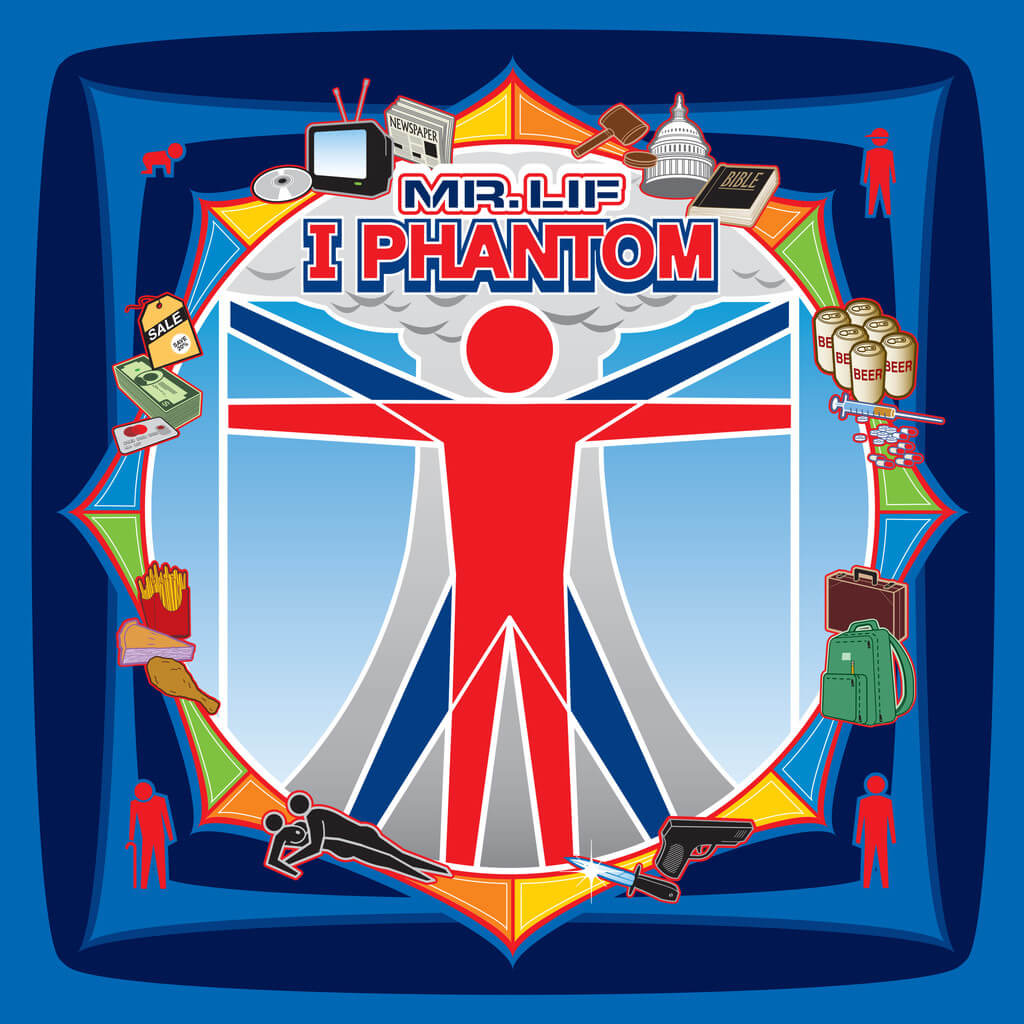


Mr. Lif’s I Phantom is a fearless Hip Hop album that pairs incisive storytelling with intricate production. Released in 2002 under the Definitive Jux label, it’s a concept album that dissects modern life through vivid narratives and sharp social critique. Lif’s lyrics dive deep into the anxieties of capitalism, societal disconnection, and existential dread, creating a record that’s as thought-provoking as it is rhythmically compelling.
From the opening track, “A Glimpse at the Struggle,” the album pulls listeners into a gritty tale of survival and desperation. Lif’s delivery is urgent yet controlled, gliding over ominous, layered beats by Fakts One. He sets the stage for a story arc that transitions seamlessly between personal reflection and apocalyptic visions. The production, handled by talents like El-P and Edan, is dense and textured, filled with booming bass, sharp scratches, and eerie synths that feel like the sonic embodiment of urban chaos.
The standout track “Return of the B-Boy” is an epic, nearly eight-minute journey that moves through eras of Hip Hop with a deliberate sense of nostalgia and reinvention. The production evolves dynamically, blending funky boom-bap rhythms with futuristic flourishes. Lif’s flow is electrifying, his lyrics swinging between cultural homage and defiance, making it a masterclass in lyrical dexterity and storytelling.
Tracks like “Live from the Plantation” and “Success” tackle the grind of the working class and the hollow allure of wealth. Lif uses stark imagery to capture the monotony of dead-end jobs, pairing his biting commentary with minimalist, claustrophobic beats. In “Success,” the tension crescendos as guest rapper Aesop Rock delivers a haunting verse about the emotional cost of chasing material gain.
The album’s structure mirrors its themes, with shifts in tempo and mood marking different chapters of its narrative. The apocalyptic closer, “Earthcrusher,” takes a grim yet gripping turn, imagining a nuclear holocaust with unsettling clarity. Lif’s voice, commanding and resolute, brings weight to the surreal chaos, leaving listeners to grapple with the album’s existential questions long after the final note.
With I Phantom, Mr. Lif crafts an album that’s ambitious in scope and execution. It’s a record that lingers in the mind, an evocative portrayal of societal and personal fractures wrapped in razor-sharp beats and verses.
7L & Esoteric – Dangerous Connection (2002)
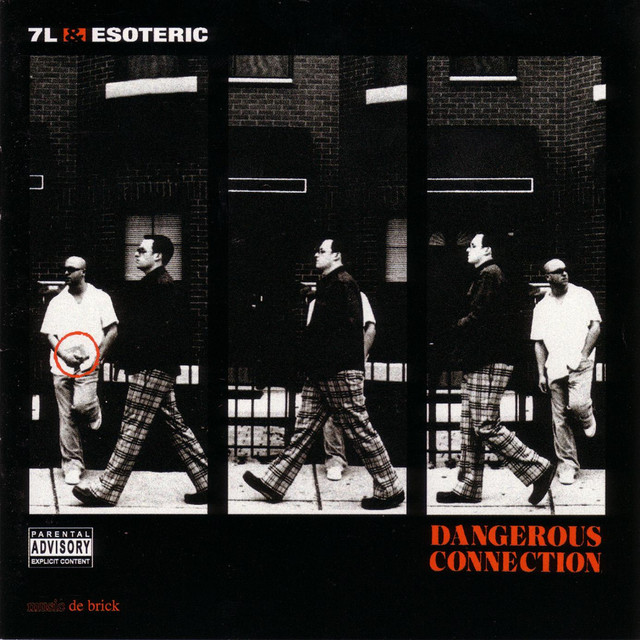


Dangerous Connection by 7L & Esoteric is a gritty, no-nonsense dive into underground Hip Hop that thrives on sharp lyricism and raw production. From the opening track “One Six,” the album establishes itself as a tense, tightly wound experience. The beats are razor-sharp, with 7L crafting a sound that’s both cinematic and hard-hitting. Harp flourishes, ominous strings, and Eastern-inspired melodies thread through tracks like “Watch Me,” creating a mood that feels as if it’s plotting something sinister. It’s Hip Hop for the night streets—a little dark, a little mysterious, but undeniably alive.
Esoteric’s voice carries an edge that grabs attention. Whether he’s throwing biting one-liners or weaving intricate patterns in songs like “Word Association,” his delivery balances aggression with a certain playful cleverness. Tracks like “Stalker,” built on a haunting jazz sample, highlight how he uses his voice to heighten the eerie tone, pulling listeners into a cinematic and personal world. The beats don’t merely support him—they dance with him.
The album excels in its collaborations. On “Speak Now,” Esoteric teams up with Vinnie Paz and Apathy for a verbal blitz over a beat that sounds like it’s been lifted from a gangster film reel. “Rules of Engagement,” featuring J-Live and Count Bass D, switches things up with a lively bounce, its flute loop and layered bassline inviting a kind of head-nodding that feels almost meditative. These guest appearances don’t overshadow Esoteric but rather add different shades to the album’s already rich palette.
A standout moment is “Terrorist’s Cell,” with its chilling backdrop courtesy of Jedi Mind Tricks’ Stoupe. Here, Esoteric leans into vivid storytelling, painting bleak and arresting scenes. The weight of the track lingers, much like the ghostly piano loops and creeping bassline that 7L threads throughout. Towards the backend of the album, there’s “Rest in Peace,” where Esoteric contemplates legacy over a swirling, mournful instrumental by Kutmasta Kurt.
What makes Dangerous Connection memorable isn’t just its cohesion or its ability to pair lyricism with production—it’s the mood it creates. Tense, deliberate, and sharp-edged, this is Hip Hop that feels alive with purpose, proving that 7L & Esoteric were carving out a lane that deserved more eyes and ears.
Insight – Updated Software V. 2.5 (2002)
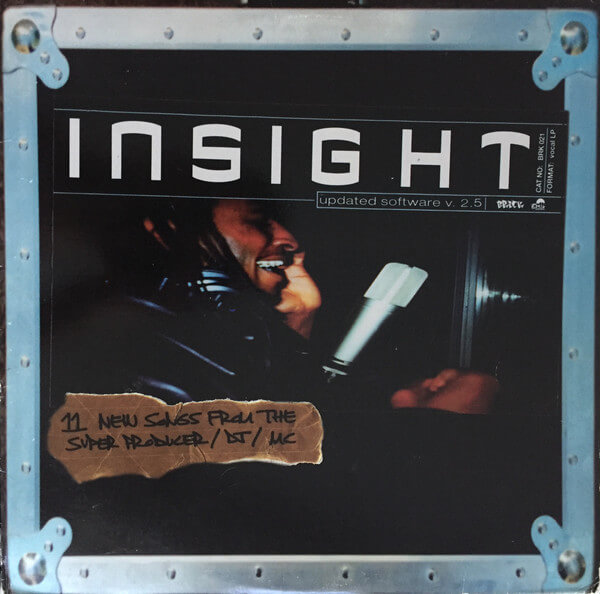


Insight’s Updated Software V. 2.5 is a masterful display of the essence of boom-bap, with a sharp focus on intricate production and razor-sharp lyricism. The album flaunts Insight’s versatility, blending complex rhymes with innovative beats that set him apart in the early 2000s underground Hip Hop scene. His unique approach to beat-making takes inspiration from a range of genres, incorporating jazz, soul, and electronic elements into a dense, layered sound that always feels fresh and exciting.
The beats themselves are smooth as well as hard-hitting, with Insight using piano chords, loops, and rich basslines. Tracks like “Drama” and “Humanity” stand out with their seamless combination of organic sampling and tight drum patterns. The production may feel raw at times, but it’s precise, almost mechanical in its tightness. Scratches and other turntablism techniques enhance the tracks, adding texture and an extra layer of complexity without overwhelming the listener.
Insight’s rapping matches the energy of his beats, with a flow that is both rapid and controlled. His wordplay is dense, and his ability to fit multiple syllables into a single bar demonstrates a technical mastery. Tracks like “Mind Shocker” highlight his skill with intricate wordplay, while others, like “Voice of Reason,” show his capacity for more thoughtful, introspective lyricism. Insight’s delivery is smooth and confident, and his steady flow allows the listener to focus on his carefully crafted words.
Lyrically, Insight weaves complex narratives and thoughts throughout the album. He reflects on personal and social issues with a level of depth and humor that keeps the listening experience engaging. His style feels conversational but elevated, as though every verse has been carefully composed to be meaningful and sonically pleasing. His storytelling is sharp, and he manages to stay engaging throughout the album, never bogging down in overly abstract or verbose language.
Updated Software V. 2.5 is a strong representation of early 2000s underground Hip Hop, demonstrating Insight’s ability to blend technical prowess with artistic expression. With both his production and rapping on display, this album remains a standout in the Boston scene and a must-listen for anyone seeking a fresh, intricate take on classic Hip Hop.
Akrobatik – Balance (2003)
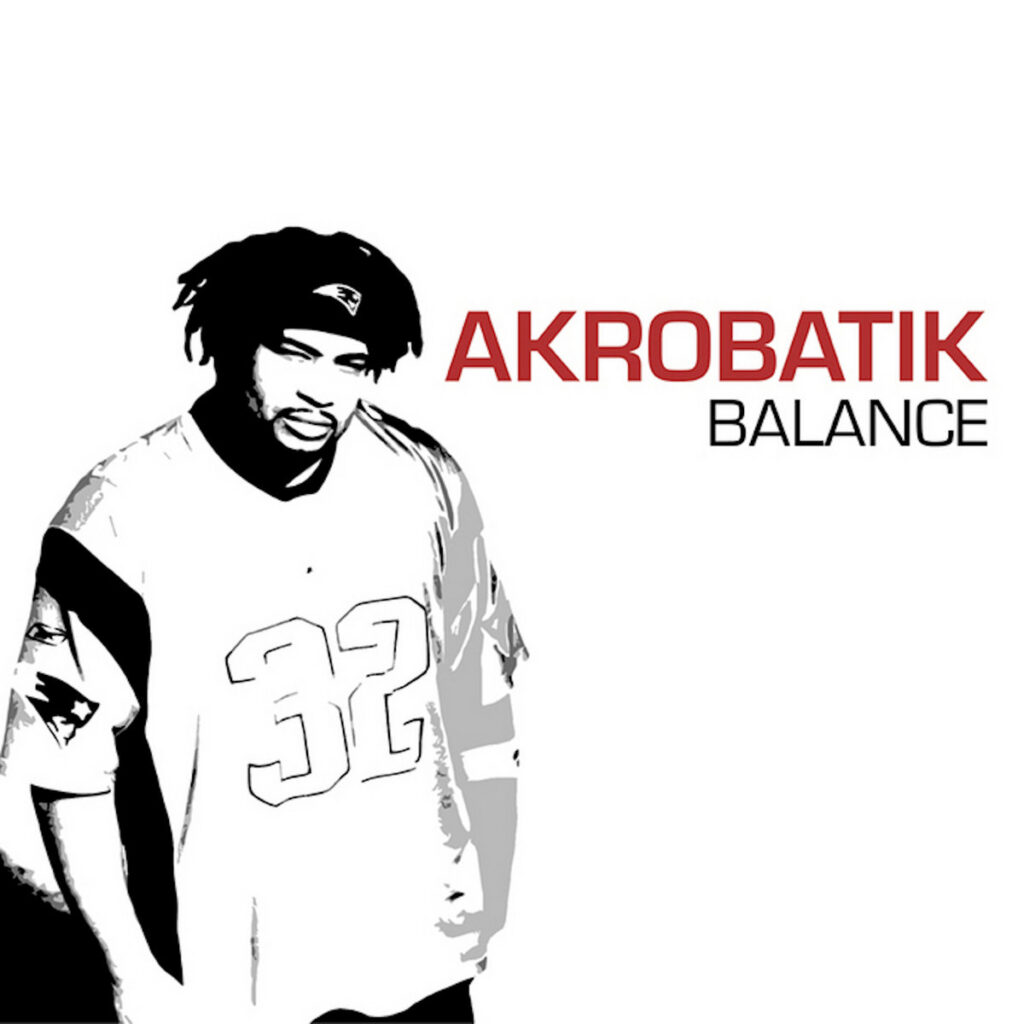


Akrobatik’s Balance is a finely crafted album that blends thought-provoking lyricism with tight, soulful production. Released in 2003, the album offers a mix of introspection, braggadocio, and social commentary. Akrobatik’s straightforward, conversational style anchors the album, delivering verses with the kind of confidence and clarity that only years of experience can cultivate.
The album opens with “Balance,” where Akrobatik lays out his perspective on Hip Hop and the world. Over a steady drum loop and soulful samples, he touches on the lack of diversity in rap and the imbalance in society at large. His delivery is measured and controlled, allowing his message to take center stage. The theme of balance plays out across the entire album, reflected in both the production and the lyrics.
Akrobatik’s collaborations on Balance elevate the album’s vibe, with Mr. Lif making an appearance on the standout track “Wreck Dem.” The two Boston MCs trade verses with ease, their styles complementing each other effortlessly. Production-wise, Balance thrives in the hands of seasoned beatmakers like Da Beatminerz, Edan, and Diamond D, whose contributions deliver crisp drums and jazzy loops that create an engaging backdrop for Akrobatik’s sharp rhymes. Tracks like “Hand That Rocks the Cradle” and “Feedback” exemplify this, fusing gritty percussion with introspective moments.
The slower cuts on the album—like “Remind My Soul”—offer a deeper, reflective side of Akrobatik. On this track, he ruminates on African-American identity and societal struggles, backed by soulful guitar riffs and smooth vocals. These moments give the album a more emotional range, balancing the upbeat, punchy tracks with a meditative tone.
However, Balance is not without its flaws. Some of the hooks, like the simplistic chorus of “Always Bet On Ak,” feel a bit too basic compared to the depth of the verses. Yet, these minor shortcomings don’t take away from the overall strength of the album.
In the end, Balance is a well-rounded work from an artist who knows how to blend thoughtful lyricism with effective, dynamic production. Akrobatik’s direct approach to rap feels fresh in a time when overly complex and flashy styles were dominating the mainstream, making this debut an essential listen for those looking for grounded, meaningful Hip Hop out of Boston.
Porn Theatre Ushers – Taxachusetts (2004)
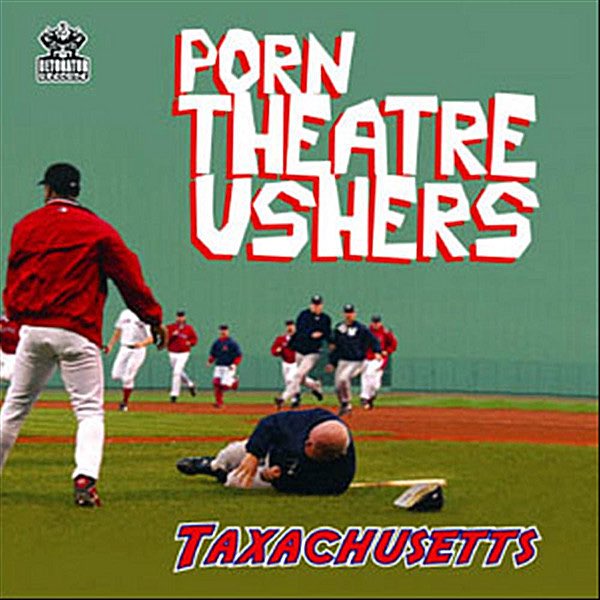


Taxachusetts by Porn Theatre Ushers is one of the hidden gems of Boston’s underground Hip Hop scene. The duo of Nabo Rawk and Mister Jason brought a sense of fun and irreverence back to rap, blending clever wordplay with offbeat production that set them apart in an era when the genre was veering into increasingly serious territory.
From the start, Taxachusetts delivers a unique vibe. The opening track, “Live From Hungary,” is a playful, sample-heavy introduction that sets the tone for the album’s unpretentious spirit. The production is rough around the edges, but that’s part of the charm—it’s not polished, but it’s still captivating. Mister Jason’s beats strike a balance between boom-bap foundations and experimental quirks. Tracks like “The 90’s” and “Don’t Care” combine catchy loops with a slightly lo-fi feel that complements Nabo’s sharp, often humorous lyrics. His delivery, full of off-kilter references and quick-witted punches, feels effortless but intentional.
Nabo Rawk’s flow is conversational, often playful, weaving through Mister Jason’s beats with a certain ease that keeps the energy flowing. The collaboration with Edan on “Edan Drops Math” is a highlight, with both MCs playing off each other’s styles to create a track that’s as much fun as it is skillful. “Scummerville to Brocky” brings in fellow Boston artists Higgenz and Rhyminal, contributing to the album’s sense of camaraderie and local pride.
Lyrically, the album is absurd and insightful at the same time, mixing humor with sharp observations. Tracks like “Jack Squat” and “Pissed Off” tackle familiar Hip Hop themes—life’s struggles and frustrations—but with a playful twist. Meanwhile, songs like “Laugh Now, Cry Later” strike a more reflective note, though the overall tone remains lighthearted and free from self-importance.
Taxachusetts may not have received widespread attention at the time of its release, but it remains a standout for its blend of experimental beats, vivid lyricism, and raw energy. It’s a great listen from start to finish, offering a refreshing mix of fun and skill, and making Porn Theatre Ushers one of Boston’s most underrated underground acts.
7L & Esoteric – DC2: Bars of Death (2004)
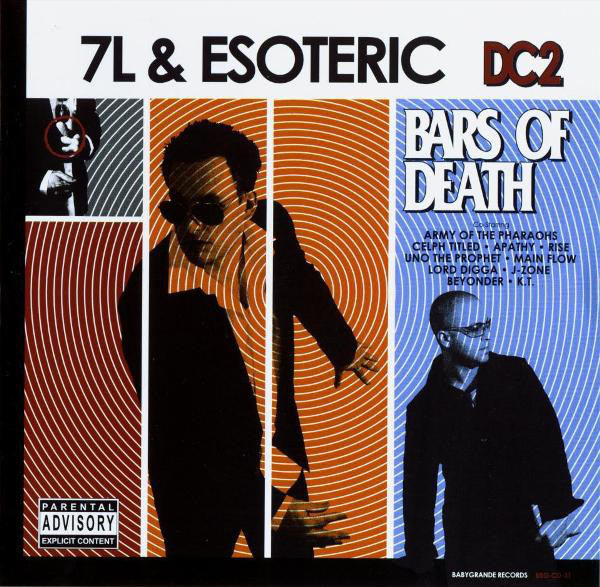


7L & Esoteric’s DC2: Bars of Death is an album built on dark, cinematic beats and sharp, unrelenting lyricism. It’s the kind of Hip Hop that’s dense with atmosphere and brimming with technical skill. From the opening notes of the eerie violin in the intro, you know you’re in for something with a serious, almost cinematic vibe. The production from 7L is slick, layered with deep basslines and edgy, cinematic samples that carry a sense of tension and urgency throughout.
The beats are heavy on boom bap, but with a distinct flair for the dramatic. “Ring Music” kicks things off with a guitar-driven rhythm, bringing a hard-hitting energy that sets the tone for the rest of the record. Other tracks like “Rogue Nation” keep the tension high with well-crafted piano loops and Esoteric’s clever, rapid-fire rhymes. His delivery is tight and dynamic, shifting between intense battle bars and more introspective moments. His wordplay is clever, with references to pop culture and brash boasts that still manage to entertain and provoke thought.
The album’s mood is consistently grim, punctuated by moments of aggressive storytelling. On “Graphic Violence,” the combination of a tense piano riff and Esoteric’s aggressive flow create a chilling atmosphere that sticks with you. There’s a sense of menace in the air, and it’s hard to ignore the threatening vibe that permeates tracks like “This Is War,” which features the heavy-hitting Army of the Pharaohs. The album’s production gives off the feel of a gritty action film, where every track builds on the last, escalating the intensity with each new beat.
There’s a real cinematic quality to the whole project, especially on tracks like “Neverending Saga,” where J-Zone brings a hypnotic beat that feels almost dreamlike. Meanwhile, songs like “Touchy Subject” delve into deeper, more personal territory, with Esoteric sparring lyrically with Uno the Prophet on race and identity in Hip Hop. The feature spots are well-chosen, with Celph Titled, Apathy, and Main Flow adding their own flair to tracks like “Murder-Death-Kill” and “Way of the Gun.”
Despite a couple of weaker moments, like the less dynamic “Battlefield,” DC2: Bars of Death is a raw, sharp offering that is a standout in Boston’s underground scene. The production keeps the listener hooked, and Esoteric’s delivery is on point, making this an album for fans of dense, atmospheric Hip Hop that demands focus and attention.
Insight – The Blast Radius (2004)
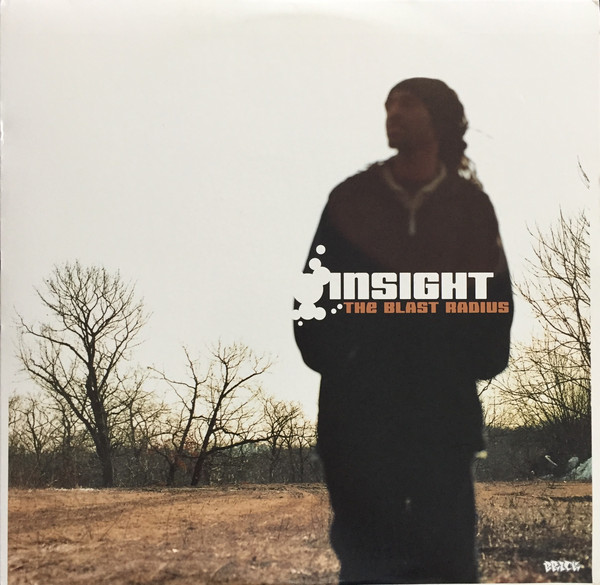


Insight’s The Blast Radius is a lyrical and conceptual masterclass that unfolds like a meticulously crafted puzzle. Every aspect, from the album’s structure to its dense lyricism, feels deliberate, rewarding listeners who dig deeper into its layers. The album’s titles, whose first letters spell out the album name, reflect the precision that defines Insight’s approach.
The production leans heavily on boom-bap fundamentals, with crisp drums and robust basslines anchoring a mix of textured samples and understated melodies. These beats provide a powerful yet unobtrusive backdrop, letting Insight’s commanding delivery take center stage. His voice is both weighty and versatile, adapting seamlessly to the demands of each track, whether layering harmonies or flipping between flows with effortless agility.
Lyrically, the album is an unrelenting torrent of ideas. Insight explores a wide spectrum of topics, from cultural commentary to personal reflection. “Time Frame” sets the tone with a sweeping historical narrative, tracing the intersections of Black history and Hip Hop’s evolution. Tracks like “Lots of Facts About Control” unpack the mechanics of misinformation, while “Another Cycle” and “Daily Routine” critique the monotony of modern life with a sharp observational edge.
“Seventeen MCs” is a standout moment, a dazzling feat of vocal dexterity where Insight embodies seventeen distinct personas, complete with unique voices, cadences, and flows. It’s an exhilarating display of creativity, blurring the line between technical prowess and theatrical storytelling. Similarly, “Inventors (Black)” presents an inventive and sobering reflection on the contributions of Black inventors through the lens of an imagined world without their innovations.
The album’s final stretch introduces guest features, adding variety to the intensity of Insight’s solo efforts. Edan’s off-kilter charisma elevates “Unexplained Phenomena,” while AG and Edo G bring rugged charisma to “Strategy.” The ethereal “Visual Audio,” a bonus track introducing Midnight Shipment, closes the project with a lighter, more collaborative energy.
The Blast Radius is relentless in its focus, a project that challenges listeners to engage fully with its complexities. While its density can feel overwhelming, the rewards are undeniable for those willing to navigate its intricacies. Insight’s multifaceted talent shines throughout, making this album a monument in Boston Hip Hop’s underground legacy.
The Perceptionists – Black Dialogue (2005)
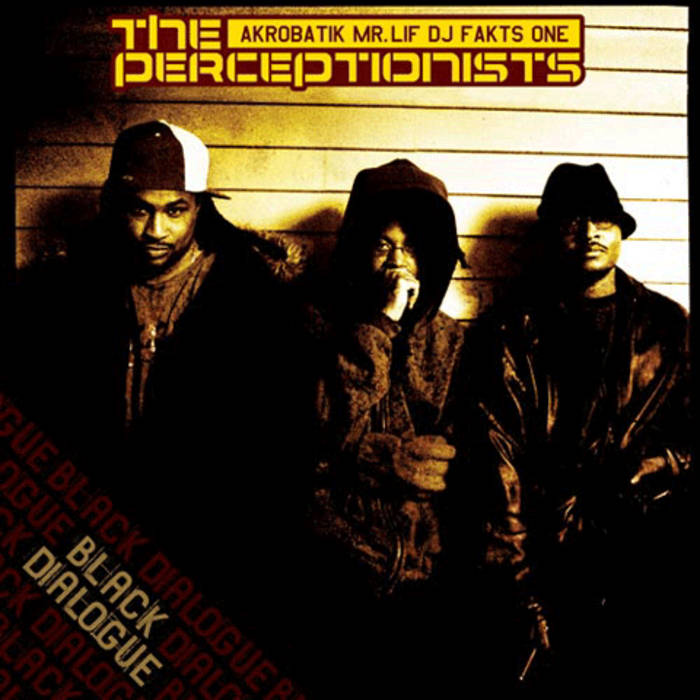


The Perceptionists’ Black Dialogue is a tightly constructed album that channels sharp lyricism, dynamic beats, and pointed social commentary into a cohesive and compelling experience. The trio—emcees Mr. Lif and Akrobatik, with DJ Fakts One—craft a sound that balances thought-provoking messages with undeniable energy, never sacrificing one for the other.
The album opens with “Let’s Move,” a kinetic call to action that sets the tone with pounding drums and a raw sense of urgency. Lif and Akrobatik trade verses with a synergy that feels effortless, their voices distinct but complementary. Fakts One anchors the track with cuts that are as precise as they are invigorating, pulling listeners into the album’s rhythm immediately.
Tracks like “Memorial Day” and “What Have We Got to Lose?!?” highlight the group’s political focus, with lyrics that dissect the Iraq War and systemic injustices. The beats, provided by producers like El-P and Fakts One, are dense and layered, combining stark melodies with heavy percussion to amplify the message without overpowering it. Akrobatik’s commanding delivery cuts through these soundscapes, while Lif’s introspective tone provides a grounded counterpoint.
The trio balances their heavier themes with moments of levity and personal reflection. “Love Letters” softens the pace, showcasing a tender side of both MCs over Willie Evans Jr.’s soulful production. The beat, laced with warm keys and subtle bass, mirrors the song’s humility and sincerity. On “Breathe in the Sun,” the album’s closing track, the duo reflects on life’s challenges and transitions, tying the album’s themes of perseverance and self-awareness together with understated grace.
Fakts One’s contributions as a DJ and producer are pivotal throughout the project, his scratches and mixes adding texture to every track. Meanwhile, guest appearances by artists like Phonte on “5 O’Clock” and Humpty Hump on “Career Finders” add moments of humor and variety without disrupting the album’s focus.
At its core, Black Dialogue thrives on its balance—intellect meets accessibility, heavy themes meet vibrant production. The result is an album that moves bodies and minds, staying true to the roots of Hip Hop while making a statement entirely its own.
Edan – Beauty And The Beat (2005)
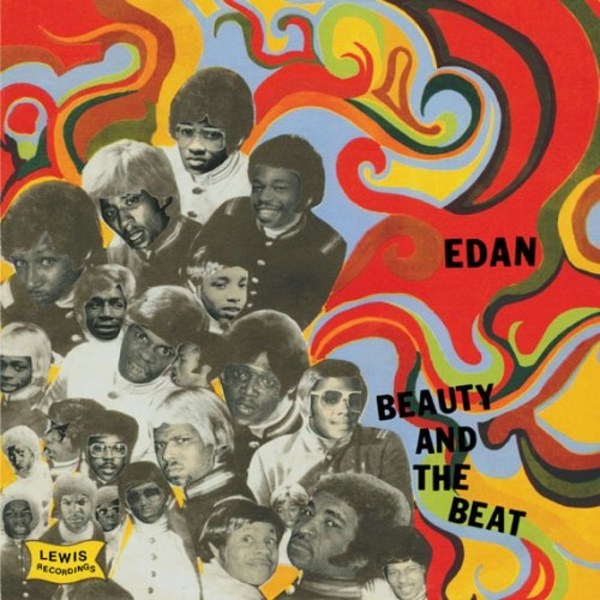


Edan’s Beauty and the Beat is a kaleidoscopic dive into Hip Hop’s roots and its untapped possibilities, blending dense psychedelic textures with raw boom-bap energy. Clocking in at a lean 34 minutes, the album feels like a tightly packed collection of sonic experiments that loop through eras and genres with effortless precision.
The opening moments of “Polite Meeting” set the tone—layered samples and jagged percussion give the track an otherworldly quality, hinting at the album’s consistent interplay between chaotic energy and meticulous craft. Edan’s lyrics glide over this sonic bed with a sharp, surrealist bent. His bars are littered with vivid metaphors—half-braggadocio, half-philosophical riddles—that pull the listener further into his universe.
Tracks like “I See Colours” elevate the album’s psychedelic undercurrent to full bloom. Built on a swirling, Moog-infused foundation, the track twists familiar Hip Hop motifs into something otherworldly. Edan’s declaration, “Without the LSD, I see colours,” is both playful and emblematic of his ability to evoke sensory overload through sound alone. The sharp, echoing snares are softened by shimmering loops that stretch like sunbeams through fog, creating an atmosphere that feels nostalgic and avant-garde in equal measure.
“Murder Mystery” and “Torture Chamber” dive into darker terrain, with dense layers of bass, unsettling samples, and aggressive, rapid-fire flows. Percee P’s guest verse on the latter is relentless, riding a Pink Floyd-inspired beat that churns with mechanical intensity. These tracks create a sense of tension, briefly grounding the album in stark reality before it leaps back into the cosmos.
The record’s experimental heart shines brightest on “Making Planets,” where Mr. Lif joins Edan over a warped organ groove. The song morphs midway into a jagged, guitar-driven outro, showcasing Edan’s penchant for abrupt yet seamless transitions. His production thrives on these shifts, weaving a narrative where each sound feels intentional but unpredictable.
With Beauty and the Beat, Edan crafts a densely layered tribute to Hip Hop’s golden age while pushing its boundaries into uncharted territory. Psychedelic, raw, and refreshingly singular, the album transforms each of its 13 tracks into a world of its own, inviting listeners to explore the spaces between the beats.
Mr. Lif – Mo Mega (2006)
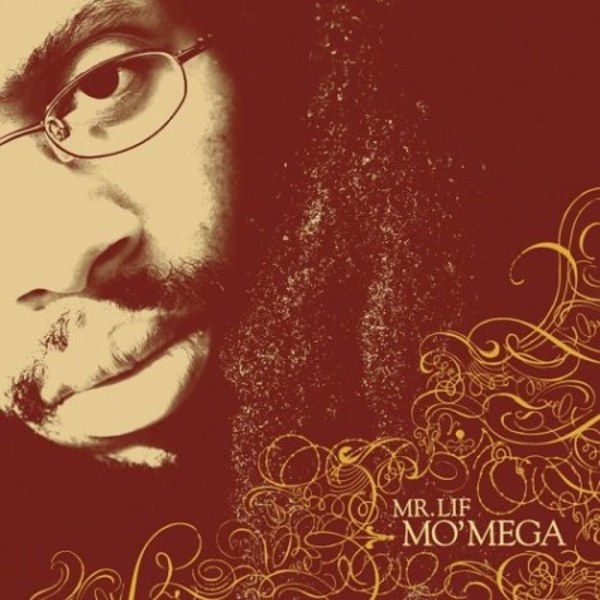


Mr. Lif’s Mo’ Mega is an intricate blend of biting political critique, personal introspection, and dense production that captures the turbulence of its time. Entirely produced by El-P, the album rides on jagged, industrial beats that pulse with a sense of urgency and unease. Lif’s monotone delivery, both deliberate and unyielding, pierces through the chaotic instrumentals, demanding attention to his sharp commentary.
The opener, “Collapse,” sets the tone with its dark, grinding synths and heavy percussion. Lif reflects on the challenges of being an artist in an unforgiving industry, balancing moments of despair with flashes of resolve. El-P’s production is relentless here, pairing distorted basslines with flickering hi-hats that mirror the lyrics’ tension.
Tracks like “Brothaz” and “Take, Hold, Fire!” showcase Lif’s fierce critique of societal and political systems. On “Brothaz,” Lif’s verses lash out against government corruption and systemic inequities, propelled by El-P’s thunderous beats and eerie, dissonant melodies. The paranoia of “Take, Hold, Fire!” is heightened by a looping piano line and a bassline that stalks the track like a predator, underscoring the psychological weight of Lif’s words.
Not all moments are so heavy. Lif brings a rare levity to “Murs Iz My Manager,” a playful, self-aware collaboration with Murs, over a fast-paced, zany beat by Edan. Similarly, “Washitup!” ventures into humorous territory, with Lif flipping a dancehall-inspired rhythm into a tongue-in-cheek ode to intimacy.
The album’s emotional core lies in its more personal tracks. “Lookin’ In” dives into Lif’s unresolved feelings about his father’s absence, unraveling a narrative steeped in pain and frustration over a haunting, minimalist beat. Meanwhile, “For You” closes the album with a heartfelt letter to a future child, juxtaposing hope against the bleak realities of the world he critiques throughout the record. The track’s warm, acoustic-tinged instrumental provides a gentle departure from the album’s otherwise unyielding tone.
Mo’ Mega is an ambitious effort, with Lif laying bare his frustrations, fears, and aspirations against a backdrop of innovative, abrasive production. It’s not an easy listen, but it’s a compelling one, rewarding those willing to engage with its layered sound and sharp lyrical perspective.
7L & Esoteric – A New Dope (2006)
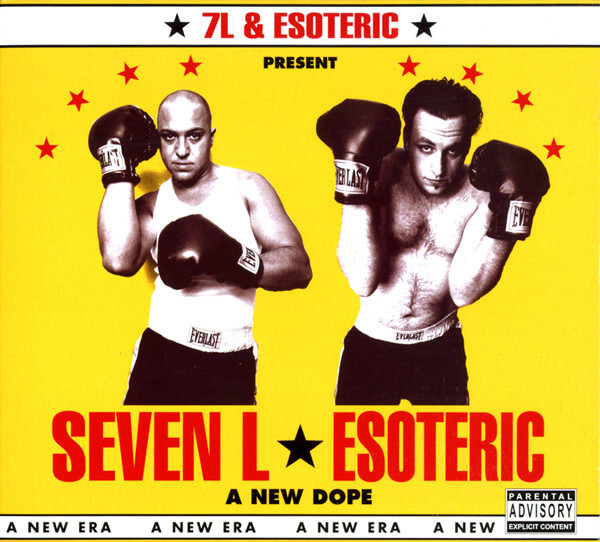


Unpopular opinion: we like this 7L & Esoteric album. It is very different from their other output, and it is often criticized for it. We like it, however, so we decided to include it here. A New Dope marks a sharp turn in the Boston duo’s sound, a departure from their boom-bap roots toward something more eclectic and experimental. While the shift might have alienated some longtime fans, the album proves itself to be an engaging, playful reworking of their style.
Right from the jump, the duo leaves behind their traditional beat-heavy foundations. Instead, 7L trades in his usual MPC grooves for an electro-inspired production that blends Kraftwerk-esque minimalism with splashes of techno and even new wave. On “Dunks Are Alive, Dunks Are Dead,” 7L constructs an evolving soundscape that starts with rhythmic, punchy percussion and morphs into an Eastern-tinged melody, before transitioning into a funky Manu Chao-inspired guitar. It’s a bold move, but it’s not alienating—it’s an invitation to explore new textures within Hip Hop. This reimagining of the genre gives the album a fresh, futuristic feel without losing the duo’s signature lyrical bite.
Esoteric’s verses here veer away from the battle raps that often defined his earlier work. Instead, his sharp wit focuses on social commentary and observations about the absurdity of daily life. In “Get Dumb,” Esoteric delivers sharp, humorous takes on everything from tattooed relationships to questionable fashion choices, all while maintaining a fast-paced flow that keeps the energy high. “A.O.S.O.” takes aim at artists more interested in clout than content, calling out the trend of online personas over substance. Despite the lighthearted tone of these tracks, there’s an underlying sense of awareness about the world, both in Hip Hop and beyond.
The standout moments are where the duo leans hardest into the experimental vibe. “Daisycutta,” featuring Kool Keith, matches rapid-fire verses with an urgent, stormy beat, while “Reggie Lewis is Watching” blends nostalgic scratches with a retro-’80s atmosphere. Even slower cuts like “Feel The Velvet” manage to maintain the album’s distinctively offbeat energy, offering a breather without losing focus.
However, not all of the experiments on A New Dope hit the mark. “Play Dumb,” the album’s closing track, essentially reworks “Get Dumb” with a less captivating arrangement. It’s a bit of a letdown after the dynamic energy of the preceding tracks. And while the consistent, techno-driven beats do keep the album coherent, the production can occasionally start to feel repetitive, especially on the more beat-heavy tracks like “The Most.”
That said, A New Dope remains a bold and inventive record in 7L & Esoteric’s catalog, brimming with personality and a willingness to stretch their creative boundaries. For fans willing to embrace their evolution, the album offers something distinctive, fresh, and undeniably dope. We think it deserves more recognition, and we’re glad we gave it the chance to shine here.
REKS – Grey Hairs (2008)
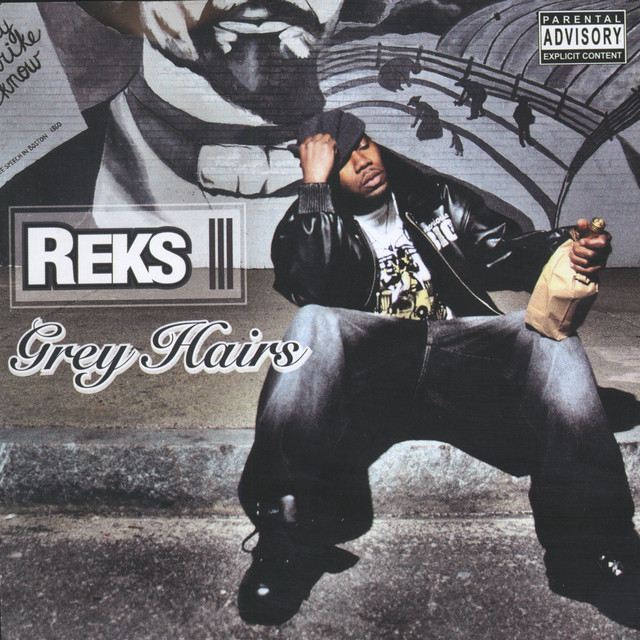


REKS’ Grey Hairs is a powerful statement of purpose, balancing lyrical precision and evocative production to create a reflective and hard-hitting album. Released in 2008, the project features contributions from producers like Statik Selektah, DJ Premier, and Large Professor, whose beats ground the album in a gritty, East Coast sound. Across 20 tracks, REKS explores personal struggles, societal critiques, and his place in Hip Hop, delivering each verse with urgency and depth.
The production on Grey Hairs is steeped in soul samples, boom-bap drums, and layered melodies that evoke a sense of melancholy and resilience. Tracks like “Say Goodnight,” produced by DJ Premier, open with ominous piano loops and sharp cuts, setting the stage for REKS to deliver barbed verses dissecting the pressures of life and the industry. Statik Selektah’s influence runs throughout, with tracks like “Black Cream (The Negro Epidemic)” pairing somber vocal chops with pounding percussion, amplifying REKS’ commentary on systemic issues and materialism.
Lyrically, REKS brings a commanding presence to the mic, his flow steady yet filled with conviction. On “Cry Baby,” he weaves a poignant narrative about teenage pregnancy, using vivid storytelling and unflinching detail to humanize a complex issue. Conversely, “The One” is a street anthem layered with sharp social observations, showcasing his ability to balance braggadocio with introspection. One of the album’s standout moments, “All In One (5 Mics),” features REKS paying homage to Hip Hop legends Tupac, Biggie, Big Pun, and Big L. His impressions of their flows are strikingly accurate, but it’s his ability to channel their spirit without losing his identity that makes the track resonate.
Despite the album’s length, its pacing rarely falters, thanks to the cohesive production and REKS’ versatility. Whether delivering cutting battle raps or reflective commentary, his voice remains a guiding force, tying the album’s themes together. Grey Hairs is a testament to REKS’ craft, blending sharp lyricism with a reverence for Hip Hop’s roots, resulting in a project that resonates as deeply today as it did upon release.
Top Choice Clique – Reel Chemistry: The Anthology (2008)
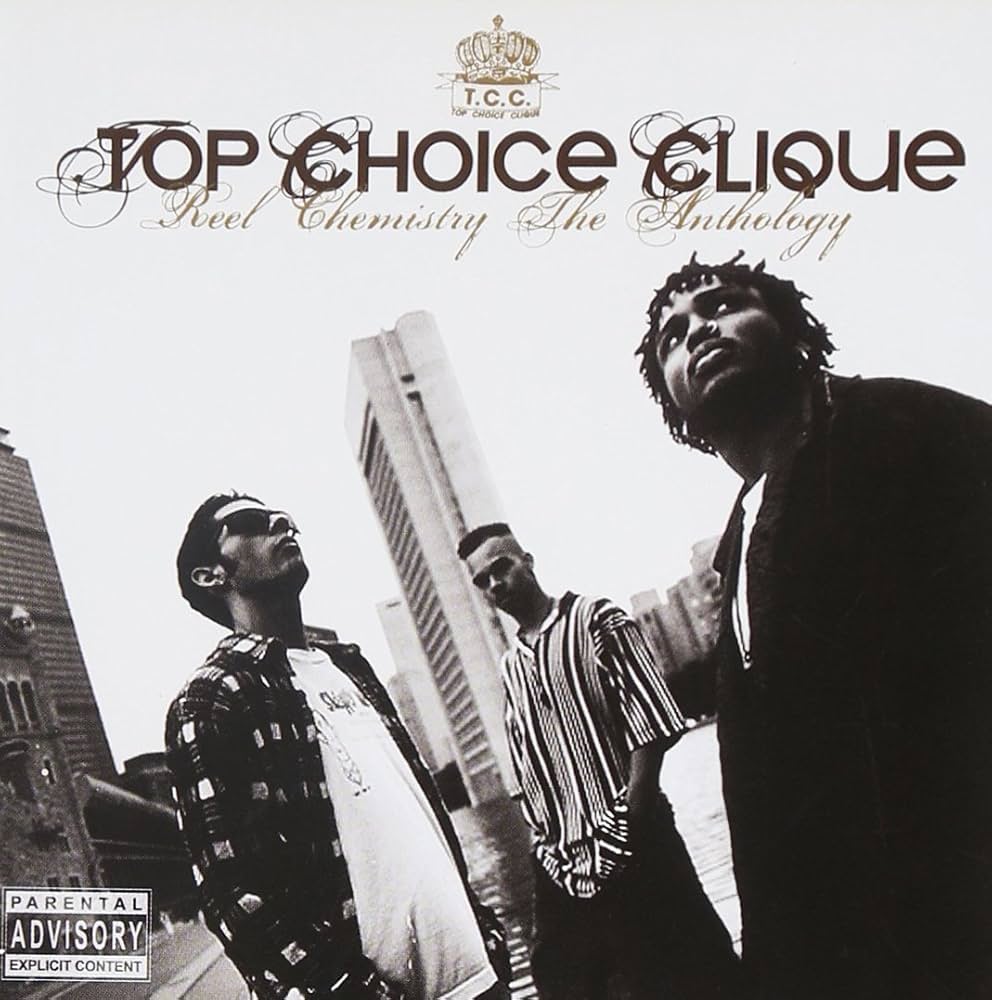


Top Choice Clique’s Reel Chemistry: The Anthology is a gritty, energetic deep dive into the roots of Boston Hip Hop. Released in 2008, this double-disc set from Brick Records dusts off the group’s shelved 1994 album and pairs it with a collection of rare tracks and unreleased material, creating a time capsule of raw East Coast Hip Hop from a pivotal era.
The production on Reel Chemistry balances the punchy minimalism of Golden Age beats with moments of experimentation. Tracks like “Peace of Mind” feature sharp drum loops and expertly layered samples, giving the song a crisp but textured feel. There’s an undeniable boom-bap energy across the album, with beats anchored by heavy basslines and dusty snares. Occasionally, synthesizer flourishes bring a subtle G-Funk influence, adding unexpected color to the predominantly East Coast palette.
Lyrically, Top Choice Clique holds their ground with a mix of socially aware commentary and streetwise bravado. Jawn P.’s confident delivery and wordplay shine, while DJ Force and DJ Gemini’s contributions amplify the collective dynamic. Tracks like “Substitution” display intricate flows tightly woven with the beats, creating a sense of urgency. The hooks are simple yet effective, sticking long after the final note fades.
What makes this anthology especially gripping is its narrative—the story of an ambitious group caught in the tangled web of major-label politics. Songs recorded for soundtracks like City of Hope and Posse show their range, but it’s the unreleased material that carries the weight of what could have been. Tracks like “Mind Expansion” and “Pull the Trigger” feel like artifacts of a group ready to break through but held back by forces outside their control.
This anthology is a celebration of resilience. The extensive liner notes and vintage photos add context, making it clear how deeply Top Choice Clique influenced Boston’s burgeoning Hip Hop scene. For fans of the era or anyone craving authentic Golden Age Hip Hop, Reel Chemistry delivers with sharp production, memorable bars, and a palpable sense of what was left on the cutting room floor.
Akrobatik – Absolute Value (2008)
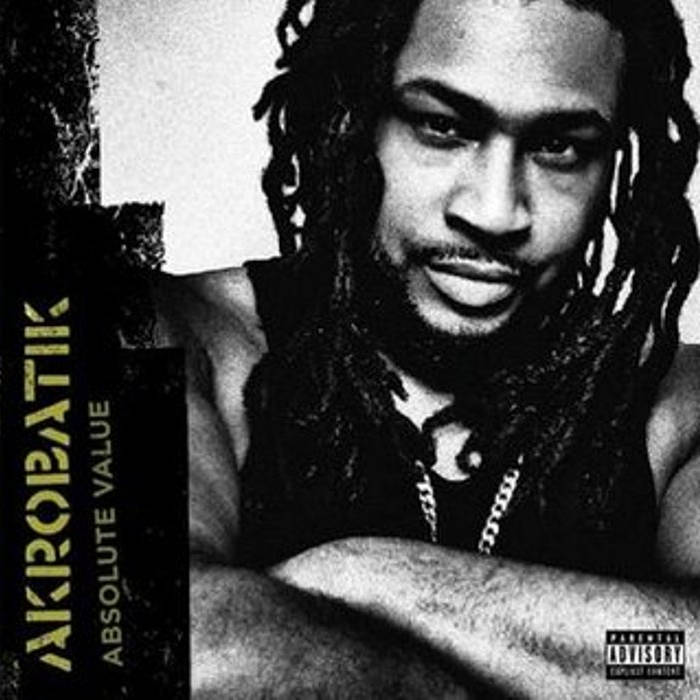


Akrobatik’s Absolute Value is a robust entry in underground Hip Hop, delivering sharp lyricism, diverse production, and a balance of high-energy bangers and introspective tracks. With contributions from heavyweights like J Dilla, Illmind, and Da Beatminerz, the album is a rich mix of styles that accentuate Akrobatik’s commanding vocal presence and thoughtful storytelling.
The album opens with “A to the K,” a driving anthem powered by Illmind’s crisp, percussion-heavy beat. Akrobatik wastes no time establishing his confidence, his verses hitting like a boxer’s well-aimed jabs. The energy spills into tracks like “Put Ya Stamp On It,” where Talib Kweli joins over a distorted, funky J Dilla backdrop. The chemistry between the two emcees makes the track an early standout.
Tracks like “Rain” and “Kindred” bring a reflective tone. On “Kindred,” Chuck D’s spoken-word introduction sets the stage for a deep dive into generational trauma and resilience. The beat, understated yet emotionally potent, allows Akrobatik’s deliberate delivery to shine. “Rain,” featuring Brenna Gethers, pairs soulful melodies with a message of perseverance, offering a quieter moment amidst the album’s harder-hitting cuts.
“Soul Glo,” produced by Da Beatminerz, leans into a classic funk groove, delivering a quick burst of infectious energy. In contrast, “Front Steps Pt. 2 (Tough Love)” is a hard-hitting critique of systemic oppression, with Akrobatik’s verses cutting through Tzarizm’s melancholy, piano-laced beat. His ability to switch between witty bravado and poignant commentary adds depth to the record.
The production is as dynamic as Akrobatik’s delivery. J-Zone’s title track is playful and punchy, while 9th Wonder’s soulful touch on “Be Prepared” complements standout verses from Little Brother. The sequencing keeps the album engaging, though the shifts in tone occasionally feel abrupt.
Absolute Value encapsulates Akrobatik’s dedication to lyricism and his respect for Hip Hop’s roots. Whether rallying listeners with bold declarations or inviting introspection, the album is a compelling listen that balances artistry and accessibility. With its mix of humor, intellect, and unrelenting beats, Absolute Value is a rewarding experience for fans of thought-provoking, skill-driven Hip Hop.
REKS – R.E.K.S. (Rhythmatic Eternal King Supreme) (2011)
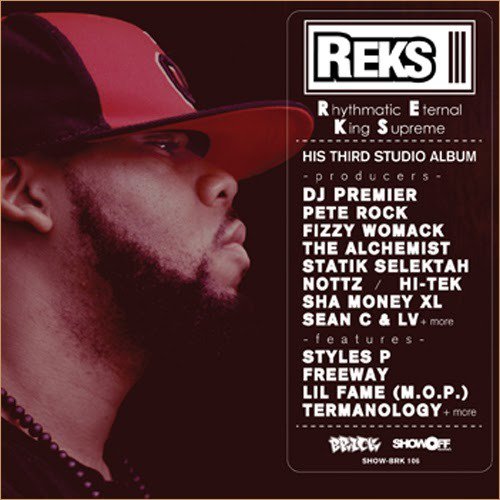


Reks’ R.E.K.S. (Rhythmatic Eternal King Supreme) is a masterclass in tightly woven lyricism, boom-bap production, and emotional resonance. From its opening moments, this album grabs hold with its intensity and doesn’t let go. The DJ Premier-produced “25th Hour” sets the tone with sharp piano stabs and snapping drums, providing a perfect backdrop for Reks’ intricate rhymes. His rapid-fire delivery builds an urgency that feels almost physical, like the walls are closing in but he’s determined to carve his way out.
Across the album’s 19 tracks, Reks explores themes of resilience, cultural pride, and the grit required to thrive as an artist. Tracks like “Why Cry,” featuring Styles P, take on a darker, menacing energy, bolstered by Alchemist’s brooding production. The heavy bassline and eerie melody lend a cinematic edge, amplifying the weight of Reks’ lyrics as he tackles street realities and personal struggles. On “Thin Line,” Pete Rock’s stripped-down beat creates space for Reks’ vivid storytelling, while his biting commentary on fame and authenticity sharpens every verse.
The introspective moments shine brightest. “This Is Me” is a poignant reflection on grief and growth, where Statik Selektah’s soulful instrumentation mirrors the vulnerability in Reks’ voice. Similarly, “Mascara (The Truth)” peels back layers of cultural critique, questioning societal expectations and systemic failures with razor-sharp clarity.
The album’s production lineup is stacked with legends—DJ Premier, Pete Rock, Statik Selektah, The Alchemist, and Hi-Tek among them—but it’s Reks’ relentless energy and lyrical precision that tie everything together. Even on lighter cuts like “Limelight,” his charisma is undeniable, turning a playful exploration of fame into something memorable.
There are a few moments where pacing falters—“The Wonder Years” feels rushed—but these are minor blemishes in an otherwise stellar record. R.E.K.S. captures the essence of Hip Hop with a rawness and authenticity that resonates long after the final track. For us, this is Reks’ finest hour.
REKS – Straight, No Chaser (2012)
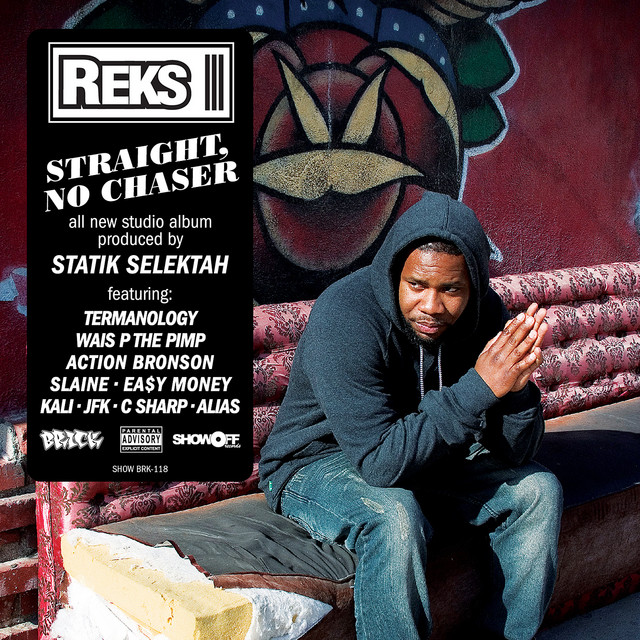


Reks’ Straight, No Chaser is a lean, tightly focused album that pairs the Boston MC with producer Statik Selektah for a full-length collaboration. The result is a mix of sharp lyricism, introspective storytelling, and boom-bap beats that feel grounded yet refreshingly alive. Statik’s production leans on warm, jazz-inflected samples, and crisp percussion, creating an understated backdrop that lets Reks’ verses take center stage.
The album’s tone is set early with tracks like “Autographs” and “Sit/Think/Drink.” The former explores the life of a working MC with an edge of world-weariness, driven by lush horns and a perfectly chopped Beastie Boys sample. Meanwhile, “Sit/Think/Drink” offers one of the album’s most reflective moments. Over melancholic piano loops and a scratched hook featuring Common, Reks dives deep into systemic inequality, personal struggles, and the fleeting nature of hope. It’s raw, unfiltered, and sobering without ever feeling preachy.
While introspection fuels much of the record, there’s a balance of lighter moments and lyrical sparring. “Riggs & Murtaugh” pairs Reks with Action Bronson over a cinematic, slightly eerie beat that feels lifted from a lost ‘90s crime drama. Their back-and-forth is lively and playful, a sharp contrast to the album’s weightier themes. On “Such a Showoff,” a posse cut with Termanology, Kali, and JFK, the energy spikes with punchlines flying over a thumping instrumental laced with scratches.
Reks also confronts deeply personal topics, like fatherhood and regret. “Parenthood” is a poignant call for fathers to take responsibility, while “Regrets” finds him grappling with missed opportunities and life’s harder lessons. These moments anchor the album emotionally, offering depth that lingers long after the tracks fade.
Statik Selektah’s beats, while consistent, occasionally settle into a subdued groove that can feel repetitive. Yet his mastery of scratching and sample selection keeps the production dynamic enough to support Reks’ storytelling.
Straight, No Chaser is direct and unfiltered, like the drink it’s named after. With its blend of gritty realism, sharp wordplay, and heartfelt reflection, it’s a record that is a highlight within Reks’ discography and the Bostonian Hip Hop landscape.
Bonus Mention: Slaine – The Boston Project (2013)



Slaine’s The Boston Project is a gritty, unvarnished love letter to his hometown. A collaborative effort with over 30 Boston MCs, the album paints a vivid portrait of the city’s Hip Hop culture, blending sharp storytelling with beats that range from brooding to triumphant.
The opener, “Evolution of the Kid,” sets a reflective tone, with Slaine recounting his tumultuous journey into music. His raw lyricism captures the tension of growing up in Boston’s rougher neighborhoods, offering a lens into the struggles and resilience that define the album’s spirit. Tracks like “Zombie Land” delve further into that darkness, weaving harrowing tales of addiction and despair. Rite Hook’s melancholic hook, paired with Slaine’s vivid imagery, makes this track a standout, immersing the listener in a neighborhood grappling with pain and survival.
Lu Balz’s production anchors the album, showcasing a variety of textures while maintaining a cohesive mood. The beats on “Back Where I’m From” and “Nothin’ But Business” strike a balance between classic boom-bap grit and polished modern sensibilities. The layered sample work and hard-hitting drums create a cinematic backdrop for Slaine and his collaborators to deliver their verses with precision.
One of the album’s strengths lies in its diverse roster of guest appearances. “Loyalty” features Kali Raps and Twice Thou dissecting themes of trust and betrayal over a soulful, introspective beat. On “Buildin’ With Edo,” the legendary Edo.G commands the track with a seasoned confidence, his verses providing a masterclass in Boston’s Hip Hop history. Meanwhile, high-energy cuts like “The F*ckery Hotel” show brash lyricism and a dynamic interplay between Slaine, Kali Raps, and REKS.
The Boston Project doesn’t shy away from its rough edges. Tracks like “Bloodthirsty” and “Bad Guy” embrace a darker, confrontational tone, reflecting the city’s underbelly. Yet moments of vulnerability, like “Hero,” where Slaine grapples with his demons and the weight of influence, add depth to the project.
By uniting such a vast array of voices, Slaine captures the essence of Boston’s Hip Hop community. The Boston Project is a layered and deeply personal exploration of place, struggle, and artistry, solidifying its place in the city’s musical legacy.
This post was originally published on this site be sure to check out more of their content.



